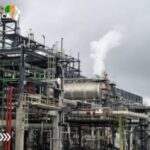South Africa Dethrones Nigeria as Africa’s Biggest Fuel Importer

According to recent trade reports, South Africa’s fuel import volumes have surged significantly in the past year, driven by rising industrial demand and domestic supply shortfalls. The country’s robust logistics network, coupled with policy reforms aimed at stabilizing its energy market, has positioned it as the continent’s leading importer.
On the other hand, Nigeria’s situation tells a different story. Despite being one of the world’s top oil producers, the nation continues to rely heavily on imported fuel due to decades of refinery inefficiency and maintenance failures. The delay in the full operation of the Dangote Refinery and government-owned refineries has further worsened the situation, forcing the country to spend billions on fuel imports annually.
Economic analysts say South Africa’s rise reflects the country’s better management of its energy sector and more consistent trade strategies. Nigeria’s overdependence on imports, weak refining output, and unstable forex policies have contributed to its declining position.
Experts also warn that Nigeria’s inability to refine its crude locally not only affects its trade balance but also undermines its economic sovereignty. The nation’s fuel import bills continue to drain foreign reserves and inflate domestic fuel prices, pushing inflation higher.
As South Africa cements its new status, energy stakeholders across Africa are calling for stronger collaboration and investment in refining infrastructure to reduce reliance on foreign markets. For Nigeria, the latest development is a wake-up call to accelerate reforms and fully operationalize its refineries if it hopes to reclaim its dominance in the continent’s energy
landscape.
TRENDING SONGS
 NPMA Appeals to Nigerian Government for Compensation After Lagos Market Fire
NPMA Appeals to Nigerian Government for Compensation After Lagos Market Fire
 Rest Every Four Hours, FRSC Issues Safety Guide for Fasting Motorists
Rest Every Four Hours, FRSC Issues Safety Guide for Fasting Motorists
 NNPC Boss Ojulari Bags UK Energy Institute Fellowship
NNPC Boss Ojulari Bags UK Energy Institute Fellowship
 Shock in Anambra: Bride Disappears Moments Before Wedding
Shock in Anambra: Bride Disappears Moments Before Wedding
 Nigerian Woman Returns ₦330 Million Accidentally Credited to Her Account
Nigerian Woman Returns ₦330 Million Accidentally Credited to Her Account
 APC Don Reach Morocco?’ VeryDarkMan Reacts to Seyi Tinubu Poster
APC Don Reach Morocco?’ VeryDarkMan Reacts to Seyi Tinubu Poster
 Bride Breaks Down in Tears as Wedding Meals Were Kept Secretly While Guests Go Home Hungry
Bride Breaks Down in Tears as Wedding Meals Were Kept Secretly While Guests Go Home Hungry
 Odogwu by Day, Robber by Night: How Marriage Joy Turned Into Tragedy
Odogwu by Day, Robber by Night: How Marriage Joy Turned Into Tragedy
 Nigerian Officials Allegedly Pocket N4–6B Weekly Through Smuggling Cartels at Seme–Badagry Border
Nigerian Officials Allegedly Pocket N4–6B Weekly Through Smuggling Cartels at Seme–Badagry Border
 Ahmad Yerima: Naval Officer to Face No Sanctions After Clash with Wike – Matawalle
Ahmad Yerima: Naval Officer to Face No Sanctions After Clash with Wike – Matawalle
Share this post with your friends on ![]()













